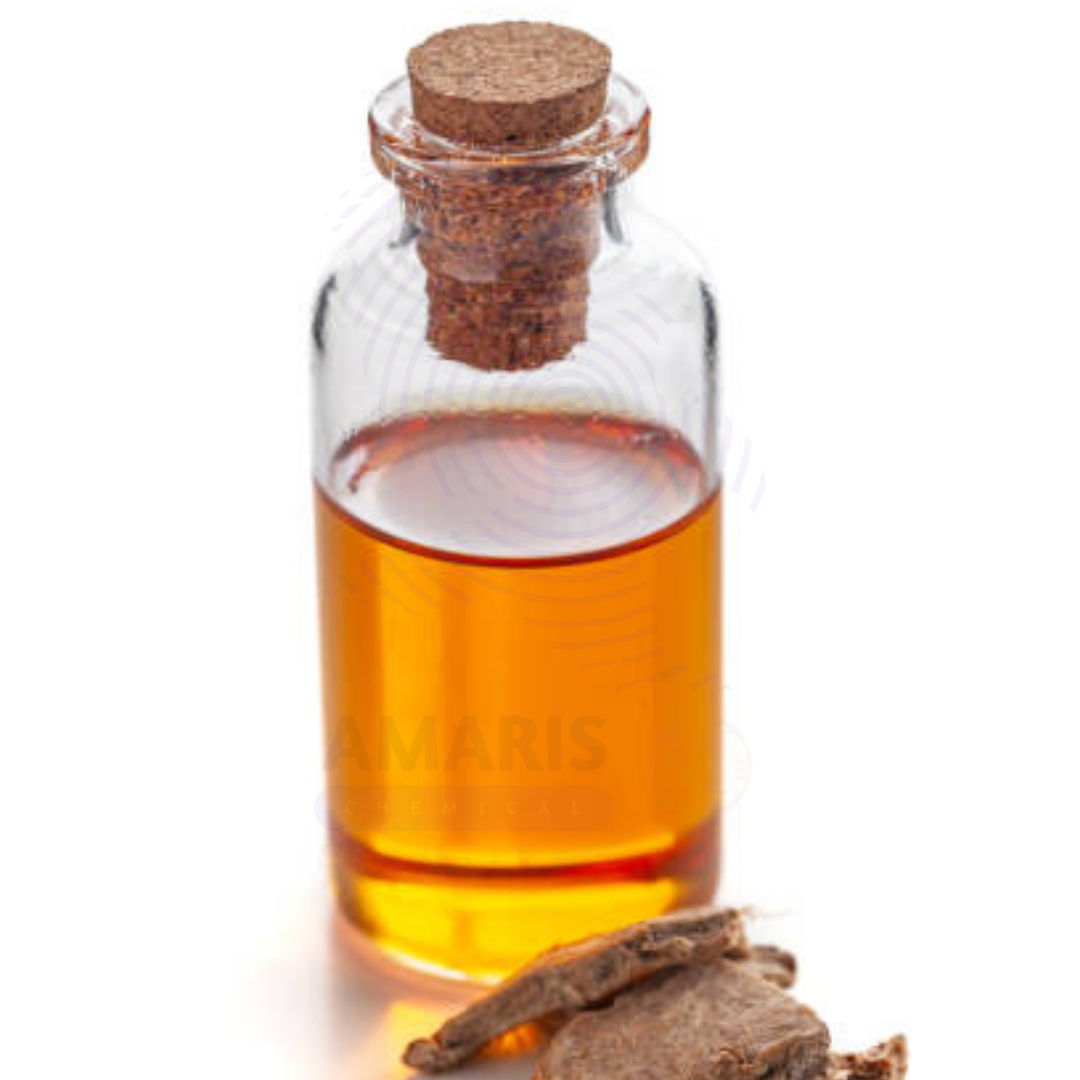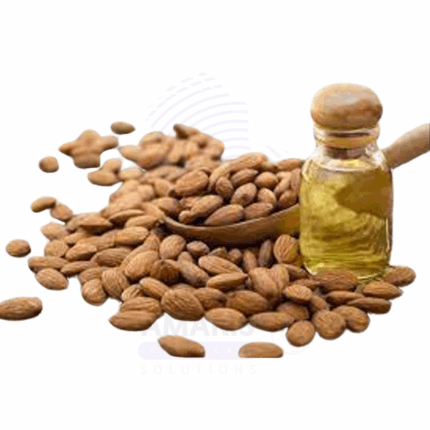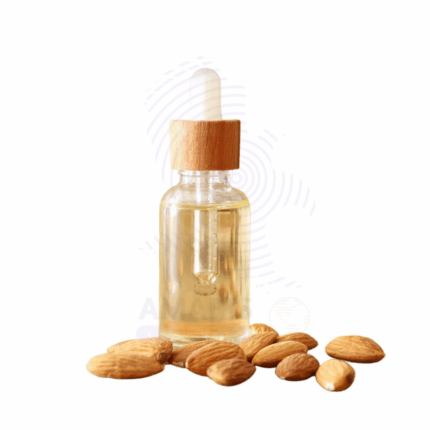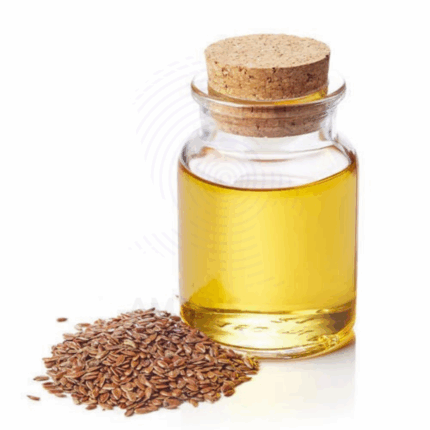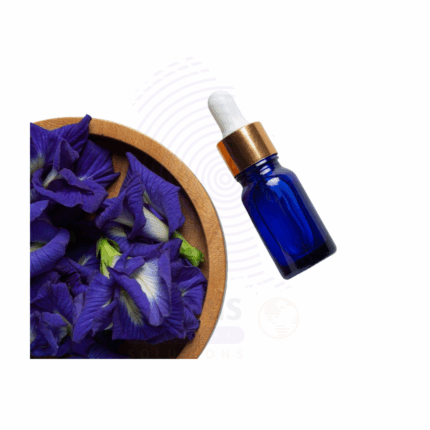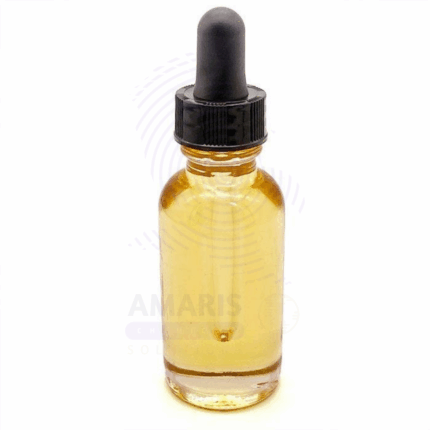Cabreuva Oil
Whatsapp Order
Cabreuva Oil is a gentle, sweet, woody-scented essential oil obtained via steam distillation of the wood of the Myrocarpus fastigiatus tree, native to South America. This light amber oil is known for its high content of nerolidol—a sesquiterpene alcohol with soothing, anti-inflammatory, and antimicrobial properties. With its mild, balsamic aroma and skin-calming effects, Cabreuva Oil is primarily used in cosmetics, perfumery, and aromatherapy applications.
It blends well with floral, citrus, and resinous oils, making it a versatile fixative in natural fragrance formulations. In personal care, it is valued for its skin-healing and regenerating effects, suitable for mature and sensitive skin types.
Description
Table of Contents
Toggle
Cabreuva Oil
Primary Uses
- Cosmetics and Personal Care
- Included in skin rejuvenation creams and serums to support cell regeneration and elasticity.
- Used in formulations for dry, mature, or irritated skin due to its soothing and nourishing properties.
- Added to facial oils and balms to promote softness and reduce the appearance of fine lines.
- Incorporated in shampoos and scalp oils for calming irritated or itchy scalp.
- Used in body butters, lotions, and massage oils for its emollient, softening effects.
- Employed in deodorants and foot care products for its mild antimicrobial properties.
- Fragrance and Perfumery
- Acts as a base or fixative note in perfumes due to its sweet, woody, and balsamic aroma.
- Commonly blended with rose, sandalwood, orange, and lavender oils in natural perfumery.
- Used in soaps and incense for warm, grounding scent profiles.
- Aromatherapy
- Used to promote emotional calm and relieve stress or anxiety when diffused or used in massage.
- Included in relaxation and grounding blends for its mild sedative qualities.
- Helpful in sleep or meditation blends when paired with other calming oils.
Secondary Uses
- Natural Remedies & Herbal Care
- Occasionally included in balms and ointments for cuts, bruises, or mild skin irritations.
- Used in traditional South American medicine as a general skin tonic and natural antiseptic.
- Spa & Massage Therapy
- Added to massage blends for muscle relaxation and to soothe nervous tension.
- Used in warm compresses for skin repair or tension relief.
KEY PRODUCT FEATURES
1. Basic Identification Attributes
- Botanical Source: Myrocarpus fastigiatus
- Common/Trade Name: Cabreuva Oil
- INCI Name: Myrocarpus Fastigiatus Wood Oil
- CAS Number: 84961-50-2
- HS Code: 3301.29
- Synonyms: Cabreúva Oil, Myrocarpus Essential Oil
2. Physical & Chemical Properties
- Physical State: Liquid
- Color & Odor: Light yellow to amber; soft, woody, slightly sweet balsamic scent
- Solubility: Insoluble in water; soluble in alcohol and fixed oils
- Main Components: Nerolidol, farnesol, bisabolene
- Refractive Index: 1.490 – 1.510
- Specific Gravity: 0.880 – 0.940
3. Safety & Hazard Attributes
- GHS Classification: Not classified as hazardous
- Toxicity: Low; generally safe when diluted
- Allergen Information: Contains natural terpenes (e.g., nerolidol)
- Exposure Limits: Use within recommended dermal limits
4. Storage & Handling Attributes
- Storage Conditions: Store tightly closed in a cool, dark, and dry area
- Container Type: Amber glass or coated aluminum
- Shelf Life: 24 months under ideal storage conditions
- Handling Precautions: Avoid direct contact with mucous membranes or damaged skin
5. Regulatory & Compliance Attributes
- IFRA-compliant for perfumery and topical applications
- Accepted under cosmetic regulations globally
- Not approved for internal use
- Vegan and cruelty-free compatible
6. Environmental & Health Impact
- Biodegradability: Biodegradable
- Ecotoxicity: Low in responsible concentrations
- Bioaccumulation: Not expected
SAFETY HANDLING PRECAUTIONS
Safety Handling Precautions
- PPE Required: Gloves recommended for bulk handling
- Handling Guidelines: Always dilute before skin contact; avoid contact with eyes
First Aid Measures
- Inhalation: Move to fresh air if discomfort occurs
- Skin Contact: Rinse with mild soap and water
- Eye Contact: Flush thoroughly with water
- Ingestion: Do not induce vomiting; seek medical attention
Firefighting Measures
- Fire Hazards: Combustible liquid
- Extinguishing Media: CO₂, dry chemical, foam
- Special Precautions: Use protective equipment in case of large-scale fire
- Hazardous Combustion Products: Carbon oxides
Related products
Almond Bitter Oil
Almond Bitter Oil, derived from the kernels of bitter almonds (Prunus amygdalus var. amara), is an essential oil known for its sharp, nutty, and marzipan-like aroma. This oil is produced through steam distillation of crushed bitter almond kernels and contains a naturally occurring compound called benzaldehyde, which gives it its characteristic scent. In purified form (free of hydrogen cyanide), bitter almond oil is used in fragrance, flavoring, and pharmaceutical applications.
Due to its potent aroma and biochemical properties, it is widely used in perfumery, baked goods flavoring (in controlled quantities), aromatherapy, and traditional topical remedies. It is important to distinguish between natural bitter almond oil, which must be detoxified, and synthetic benzaldehyde, which is commonly used as a substitute in commercial formulations.
Almond Fragrance Oil
Almond Fragrance Oil is a synthetic or naturally blended aromatic compound designed to replicate the warm, sweet, and nutty scent of almonds. It may incorporate notes of marzipan, vanilla, or cherry-like tones to mimic the characteristic aroma of bitter almonds without the presence of cyanogenic compounds. Unlike essential oils, fragrance oils are created for consistent aroma performance and are widely used across cosmetics, personal care, household products, and scented formulations.
This versatile oil delivers a nostalgic, comforting scent often associated with desserts, cleanliness, and warmth. It is valued for its stability in soaps, lotions, candles, and air care products. Almond Fragrance Oil is typically formulated to be allergen-compliant and IFRA-certified for safe use across applications.
Ambrette Seed Oil
Ambrette Seed Oil is a rare, aromatic essential oil derived from the seeds of the Abelmoschus moschatus plant. Known for its rich, musky, slightly sweet, and floral scent, Ambrette Seed Oil is often considered a botanical alternative to animal-derived musk. It is widely prized in high-end perfumery, natural cosmetic formulations, and aromatherapy for its warm, sensual, and long-lasting aroma.
This oil is rich in ambrettolide and farnesol, compounds that lend it a delicate musky note without the synthetic harshness of artificial musks. Ambrette Seed Oil is non-toxic and safe for topical use when diluted, making it ideal for fine fragrances, massage oils, and therapeutic blends.
Benzyl Alcohol
Benzyl Alcohol is an aromatic alcohol with a mild pleasant odor and clear, colorless liquid appearance. It serves as a versatile solvent, preservative, and intermediate in chemical synthesis. Benzyl Alcohol is widely used across pharmaceuticals, cosmetics, paints, coatings, and as a bacteriostatic agent in injectable drugs. Its relatively low toxicity and good solvent properties make it valuable in both industrial and consumer products.
Blue Tansy Oil
Blue Tansy Oil is a rare and highly sought-after essential oil obtained via steam distillation of the flowers of Tanacetum annuum, a Moroccan chamomile species. Known for its deep indigo-blue color and distinctive sweet, herbaceous aroma with subtle fruity undertones, this oil is rich in chamazulene — a powerful anti-inflammatory compound that gives it its characteristic blue hue.
Blue Tansy Oil is celebrated in the cosmetic and personal care industry for its calming, soothing, and skin-balancing effects. It is especially beneficial in formulations for sensitive, irritated, or inflamed skin. In aromatherapy, it is valued for promoting relaxation and emotional ease. Its rarity and potency make it a premium choice for high-end skincare, therapeutic blends, and luxury personal care products.
Calendula Oil Infused
Calendula Oil Infused is a golden-yellow carrier oil produced by macerating the dried flower petals of Calendula officinalis (commonly known as pot marigold) in a base oil, typically sunflower, olive, or sweet almond oil. This infusion draws out the calendula flower’s active constituents—including flavonoids, triterpenoids, and carotenoids—resulting in a gentle yet potent botanical oil widely used for its anti-inflammatory, healing, and skin-soothing properties.
Renowned in traditional herbalism and modern natural skincare, Calendula Infused Oil is especially valued for treating sensitive, damaged, or irritated skin. It’s a go-to oil in formulations for baby care, wound healing, and after-sun products. Unlike essential oils, this is not a distilled product and is safe for direct application to the skin.
Camphor White Oil
Camphor White Oil is a steam-distilled essential oil obtained from the wood of the Camphor tree (Cinnamomum camphora), primarily from the white fraction, which is rich in 1,8-cineole, camphor, and linalool. This fraction is the most commonly used in aromatherapy and topical preparations due to its potent but relatively balanced composition compared to brown or yellow fractions. The oil has a sharp, penetrating aroma with a cooling, medicinal character.
Traditionally used in topical pain relief, respiratory care, and soothing balms, Camphor White Oil is known for its anti-inflammatory, decongestant, antiseptic, and stimulating effects. It is widely used in cosmetics, personal care, pharmaceuticals, and aromatherapy formulations.
Capaiba Balsam Oil
Capaiba Balsam Oil is a natural oleoresin essential oil extracted from the trunks of Copaifera species, primarily Copaifera officinalis, native to South America. This oil is obtained via tapping or sustainable extraction methods and is prized for its anti-inflammatory, antibacterial, antioxidant, and analgesic properties. It has a sweet, woody, slightly balsamic aroma and is golden to light brown in color with a medium viscosity.
Copaiba Balsam Oil is rich in β-caryophyllene, a sesquiterpene known for its therapeutic effects, especially in skincare and wellness applications. It is widely used in cosmetics, personal care, aromatherapy, and pharmaceutical preparations, particularly those targeting pain, skin health, and inflammation.


 Preservatives(food)
Preservatives(food) Flavor Enhancers
Flavor Enhancers Acidulants
Acidulants Sweeteners
Sweeteners Antioxidants
Antioxidants Colorants(food)
Colorants(food) Nutraceutical Ingredients (food)
Nutraceutical Ingredients (food) Nutrient Supplements
Nutrient Supplements Emulsifiers
Emulsifiers
 Collectors
Collectors Dust Suppressants
Dust Suppressants Explosives and Blasting Agents
Explosives and Blasting Agents Flocculants and Coagulants
Flocculants and Coagulants Frothers
Frothers Leaching Agents
Leaching Agents pH Modifiers
pH Modifiers Precious Metal Extraction Agents
Precious Metal Extraction Agents
 Antioxidants(plastic)
Antioxidants(plastic) Colorants (Pigments, Dyes)
Colorants (Pigments, Dyes) Fillers and Reinforcements
Fillers and Reinforcements Flame Retardants
Flame Retardants Monomers
Monomers Plasticizers
Plasticizers Polymerization Initiators
Polymerization Initiators Stabilizers (UV, Heat)
Stabilizers (UV, Heat)
 Antifoaming Agents
Antifoaming Agents Chelating Agents
Chelating Agents Coagulants and Flocculants
Coagulants and Flocculants Corrosion Inhibitors
Corrosion Inhibitors Disinfectants and Biocides
Disinfectants and Biocides Oxidizing Agents
Oxidizing Agents pH Adjusters
pH Adjusters Scale Inhibitors( water)
Scale Inhibitors( water)
 Antioxidants(cosmetic)
Antioxidants(cosmetic) Emollients
Emollients Fragrances and Essential Oils
Fragrances and Essential Oils Humectants
Humectants Preservatives
Preservatives Surfactants(cosmetic)
Surfactants(cosmetic) Thickeners
Thickeners UV Filters
UV Filters
 Fertilizers
Fertilizers Soil Conditioners
Soil Conditioners Plant Growth Regulators
Plant Growth Regulators Animal Feed Additives
Animal Feed Additives Biostimulants
Biostimulants Pesticides (Herbicides, Insecticides, Fungicides)
Pesticides (Herbicides, Insecticides, Fungicides)
 Active Pharmaceutical Ingredients (APIs)
Active Pharmaceutical Ingredients (APIs) Excipients
Excipients Solvents(pharmaceutical)
Solvents(pharmaceutical) Antibiotics
Antibiotics Antiseptics and Disinfectants
Antiseptics and Disinfectants Vaccine Adjuvants
Vaccine Adjuvants Nutraceutical Ingredients (pharmaceutical)
Nutraceutical Ingredients (pharmaceutical) Analgesics & Antipyretics
Analgesics & Antipyretics
 Analytical Reagents
Analytical Reagents Solvents(lab)
Solvents(lab) Chromatography Chemicals
Chromatography Chemicals Spectroscopy Reagents
Spectroscopy Reagents microbiology-and-cell-culture-reagents
microbiology-and-cell-culture-reagents Molecular Biology Reagents
Molecular Biology Reagents Biochemical Reagents
Biochemical Reagents Inorganic and Organic Standards
Inorganic and Organic Standards Laboratory Safety Chemicals
Laboratory Safety Chemicals Specialty Laboratory Chemicals(Special Laboratory Equipment)
Specialty Laboratory Chemicals(Special Laboratory Equipment)
 Demulsifiers
Demulsifiers Hydraulic Fracturing Fluids
Hydraulic Fracturing Fluids Scale Inhibitors(oil)
Scale Inhibitors(oil) Surfactants(oil)
Surfactants(oil) Drilling Fluids
Drilling Fluids
 Dyes and Pigments
Dyes and Pigments Bleaching Agents
Bleaching Agents Softening Agents
Softening Agents Finishing Agents
Finishing Agents Antistatic Agents
Antistatic Agents
 Admixtures
Admixtures Waterproofing Agents
Waterproofing Agents Sealants and Adhesives
Sealants and Adhesives Curing Compounds
Curing Compounds Concrete Repair Chemicals
Concrete Repair Chemicals Anti-Corrosion Coatings
Anti-Corrosion Coatings
 Surfactants(cleaning)
Surfactants(cleaning) Builders
Builders Enzymes
Enzymes Solvents (Cleaning)
Solvents (Cleaning) Fragrances
Fragrances
 Electronic Chemicals
Electronic Chemicals Catalysts
Catalysts Lubricants
Lubricants Photographic Chemicals
Photographic Chemicals Refrigerants
Refrigerants Automotive chemicals
Automotive chemicals Pyrotechnic Chemicals
Pyrotechnic Chemicals
 Biodegradable Surfactants
Biodegradable Surfactants Bio-based Solvents
Bio-based Solvents Renewable Polymers
Renewable Polymers Carbon Capture Chemicals
Carbon Capture Chemicals Wastewater Treatment Chemicals
Wastewater Treatment Chemicals
 Pigments
Pigments Solvents(paint)
Solvents(paint) Specialty Coatings
Specialty Coatings Binders/Resins
Binders/Resins Additives
Additives Driers
Driers Anti-Corrosion Agents
Anti-Corrosion Agents Functional Coatings
Functional Coatings Application-Specific Coatings
Application-Specific Coatings
 Leavening Agents
Leavening Agents Dough Conditioners
Dough Conditioners Flour Treatments
Flour Treatments Fat Replacers
Fat Replacers Decoratives
Decoratives Preservatives(baking)
Preservatives(baking)
 Plasticizers & Softeners
Plasticizers & Softeners Reinforcing Agents
Reinforcing Agents Adhesion Promoters
Adhesion Promoters Vulcanizing Agents
Vulcanizing Agents Antidegradants
Antidegradants Blowing Agents
Blowing Agents Fillers & Extenders
Fillers & Extenders Accelerators & Retarders
Accelerators & Retarders